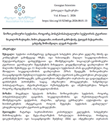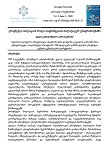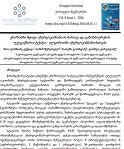მონაცემთა ცენტრის მომავალი, მისი დადებითი და უარყოფითი მხარეები
Downloads
Why are more and more large and mid-sized organizations now considering data center outsourcing? Are the pros of IT outsourcing overblown? Or do organizations want to embrace the trend for the financial and operational advantages that data center management outsourcing offers? Unfortunately, a simple yes or no will not be enough to answer the above questions. According to a recent survey of Fortune 500 companies by Forbes, most IT companies now prefer IT outsourcing over in-house data center operations due to the advantages that data center outsourcing offers. This includes minimal operational costs, better utilization of infrastructure, access to servers and compute/storage on demand, etc. Before you decide to outsource your data center, carefully research your options, analyze your business prospects, and conduct a careful examination of your assets, budgets, and requirements. Carefully evaluating the pros and cons of data center outsourcing and how it might affect your business is something you should consider before signing an outsourcing contract. Data centers are critical to today's business scene. Although their demands have always been on an upward trajectory, the situation created by the COVID-19 pandemic has pushed it further. Like all other segments in and around IT, data center technologies are rapidly changing to achieve a highly optimized and efficient system. Therefore, it is very important for you as a business owner to stay up to date with each of these technological changes and trends. After all, they are going to create the future of data centers. Advances in technology will help the overall performance of the data center. Predictive analytics tools can help security and real-time monitoring teams spot potential problems early and fix them before they impact operational performance. Data center AI can highlight areas that could work more efficiently, such as cooling or power consumption. Thus, data center composability means creating resources that can work with many different systems. Instead of dedicated or narrow-use resources providing only one service, data centers should use resource pools that can contribute to the deployment of different types of workloads, such as storage, networking, or server equipment. Likewise, the implementation of composite resources helps to avoid locked capacity in the data center, thereby improving efficiency and throughput. Above all, digital transformation will enable data centers to deliver additional value to customers. Edge computing will help providers run low-latency workloads with end users, while software virtualization will create more budget-friendly options for multiple workloads. As private and public clouds combine to create more flexible and robust hybrid cloud deployments, companies will leverage technology to do more with less.
Downloads
• ნუგზარ ყოჩიაშვილი, იოსებ ქართველიშვილი. მონაცემთა ცენტრის არქიტექტურის აგება და უსაფრთხოების უზრუნველყოფა. საერთაშორისო სამეცნიერო-პრაქტიკული კონფერენცია „ინოვაციები და თანამედროვე გამოწვევები - 2022“. თბილისი, 2022 წ.
• https://www.thesagenext.com/blog/technology-trends-transforming-data-centers
Copyright (c) 2023 GEORGIAN SCIENTISTS

This work is licensed under a Creative Commons Attribution-NonCommercial-NoDerivatives 4.0 International License.


























































































































































































































